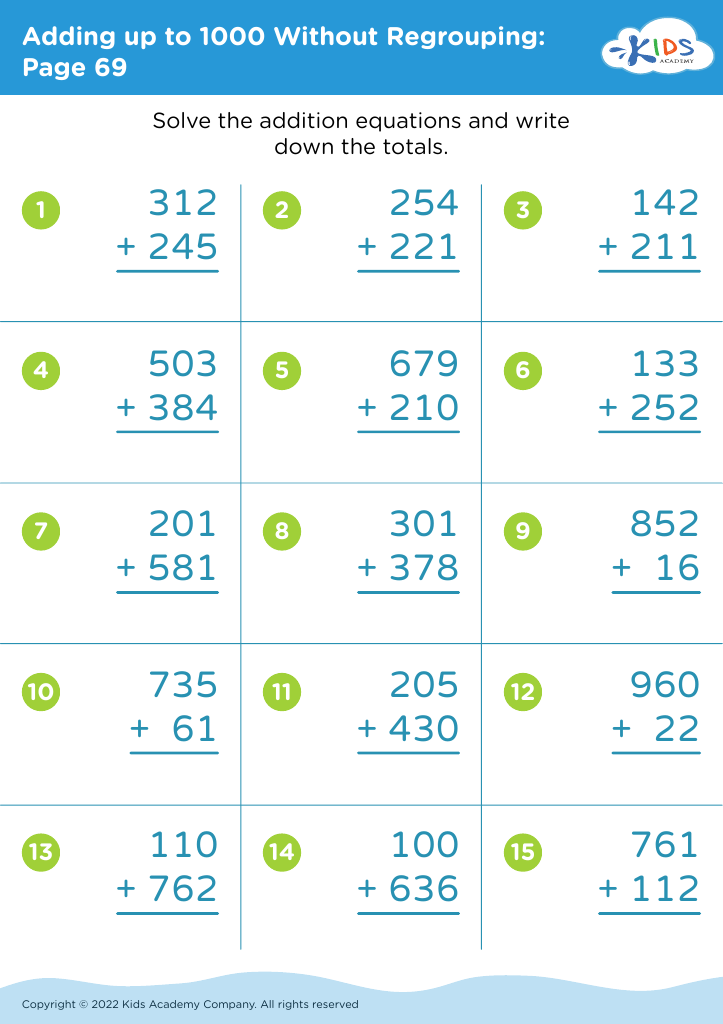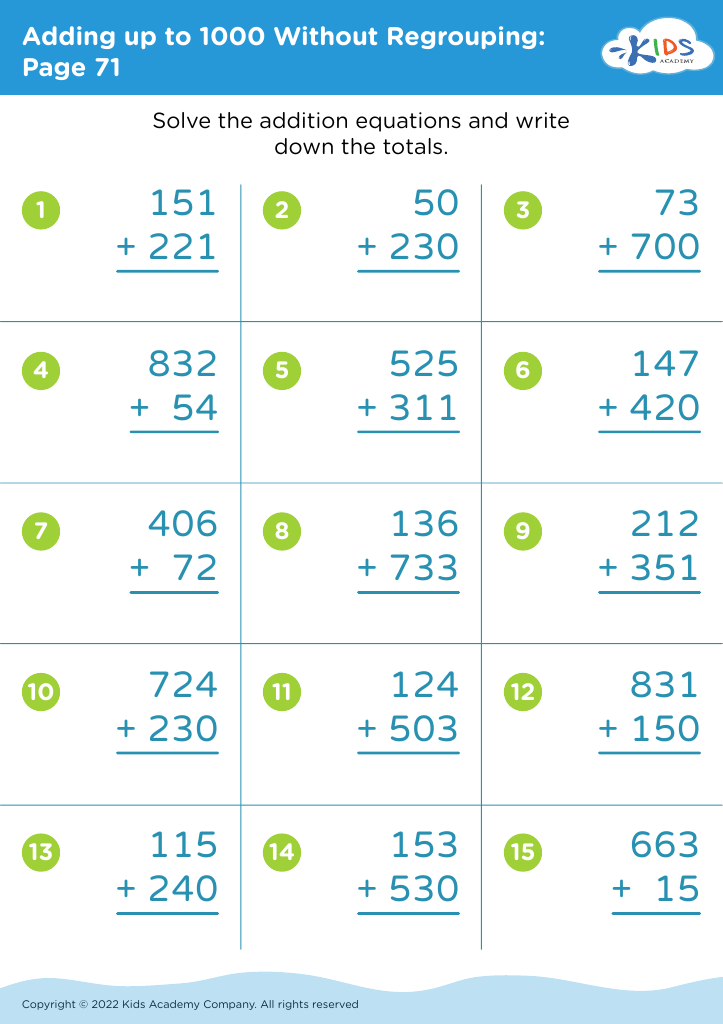Recognize patterns Adding up to 1000 Without Regrouping Worksheets for Ages 4-7
3 filtered results
-
From - To
Help your young learners master the basics of arithmetic with our "Recognize Patterns Adding up to 1000 Without Regrouping Worksheets for Ages 4-7". With engaging activities, these worksheets are designed to help kids recognize numerical patterns and practice simple addition up to 1000 without the complexity of regrouping. Created by educational experts, they build foundational math skills, enhance problem-solving abilities, and promote number sense through fun and interactive exercises. Tailored specifically for children ages 4-7, our worksheets are an invaluable resource for parents and teachers aiming to improve early math literacy. Start fostering a love for math today!
Parents and teachers should care about pattern recognition and practicing addition up to 1000 without regrouping for children aged 4-7 because it foundationally supports mathematical development. At this early stage, educational experiences should be enjoyable and also building blocks for future learning. Recognizing patterns hones a child’s cognitive skills, fostering their ability to predict and understand sequences, which is crucial in problem-solving and logical thinking.
Adding up to 1000, specifically without regrouping, builds confidence in basic arithmetic. Without the complexity of regrouping, children can focus on understanding the notion of addition and the significance of place values – units, tens, and hundreds. Mastering this builds their number sense, a vital component of numeracy where children learn the relationships between numbers and how they work together.
Furthermore, this practice enhances memory, attention to detail, and patience, all essential life skills. By worrying less about mistakes associated with regrouping, children can develop a positive relationship with math, reducing fear and anxiety related to the subject and encouraging a growth mindset.
Overall, exposing children to pattern recognition and non-regrouping addition tasks provides a nurturing environment that cultivates an intrinsic enjoyment of math, paving the way for effortless transition to more complex arithmetic in the future.













